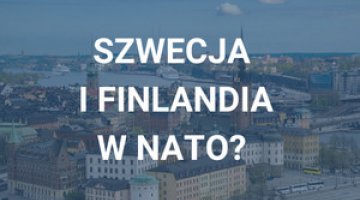Sweden: liberal strategy in fighting the coronavirus pandemic
Sweden stands out against the backdrop of other EU countries, having adopted a more lenient strategy of combatting the COVID-19 pandemic. To date the country has not taken measures that would put significant constraints on public life. The recommendations include social distancing, teleworking and self-isolation of people aged over 70. Distance learning has been introduced in secondary schools and universities, a ban on gatherings of over 500 people has been imposed, and culture institutions have been closed. However, bars, restaurants and stores as well as ski resorts in the country all remain open. Public transport is still running, primary schools, kindergartens and nurseries are open and EU / EEA citizens can enter the country without any limitations (the borders have been closed to third country citizens, in line with the European Council agreement of 17 March). According to data of 25 March, there are over 2,500 confirmed (tested) cases of coronavirus infections (25 cases per 100,000 inhabitants) and 42 people have died. The highest number of cases has been reported in Stockholm, in Scania in the south of Sweden and in Västra Götaland, whose capital is Gothenburg.
Commentary
- Sweden’s strategy for fighting the COVID-19 outbreak is based on the premise that it is already widespread in Swedish society, that it cannot be contained and a shutdown in the country may not necessarily bring about the expected outcome. According to official statements, the people tested positive for the coronavirus are only a ‘tip of the iceberg’ of the overall number of those infected. Sweden’s strategy consists in isolating people aged over 70 and people from at-risk groups, limiting the transmission of the virus in the healthcare system and slowing down the transmission in the society in order for the healthcare system to be able to treat all cases at the peak of the infection. Only those who show symptoms of infection, medical staff, and people from vulnerable groups are being tested.
- The COVID-19 pandemic has shown the distinctive character and the decentralisation of the Swedish administration system. Separate agencies subordinated to particular ministries are responsible for the healthcare system, social policy and welfare and education, among other areas: Folkhälsomyndigheten (for public health), Socialstyrelsen (for social affairs), Skolverket (for education). The agencies have large autonomy in taking measures and making decisions with regard to crisis management during the pandemic. The agencies work closely together and their representatives hold press conferences daily (apart from weekends). At present, the Swedish Public Health Agency is in charge of crisis management in the healthcare and the country’s main epidemiologist, Anders Tegnell, who has so far been critical of the introduction of severe restrictions in the country, is responsible for the strategy of combatting the pandemic. It appears to be a conscious decision of the Swedish minority government to move the responsibility for the fight against the pandemic in the healthcare at the expert level.
- Cultural conditions may also have an impact on Sweden’s less stringent approach to the COVID-19 pandemic. Swedish citizens tend to observe the recommendations regarding social distancing. They do not cultivate many and particularly close social relations and for this reason more rigorous restrictions to curb the spread of the virus may not be necessary at this stage. This strategy may however bring about a higher mortality rate in groups with immigration background who have closer family ties and have a more limited access to information, poorer housing conditions and live in neighbourhoods with a lower standard of healthcare (in the region of Stockholm six Swedish citizens of Somali heritage have died due to coronavirus). The decision not to close nurseries, kindergartens and primary schools is linked to the fact that it is not possible to organise an alternative (family-based) organised care for children of workers in the healthcare and in other key public or communal services. However, the government has not ruled out such a step in the future, based on the new legislation of 19 March (on emergency situations in the education system), which is one of the two legal acts which have been adopted by the Swedish parliament with regard to the pandemic so far. The legislation has also introduced solutions for taking care of the children of workers from the above-mentioned professional groups.
- Should the pandemic intensify, the introduction of further constraints on social life cannot be ruled out. Their introduction might, though, be more at the local and regional levels. Due to its large territory, Sweden is reckoning with different peaks of infection in different regions, which will make it possible to shift resources to the hardest hit parts of the country. Hospitals are currently increasing the number of ventilators and beds in intensive care units since until recently there were only 526 of such beds in Sweden (which has a population of 10 million). In the largest urban areas – Stockholm and Gothenburg – the healthcare system is being supported by the military which is building field hospitals with a capacity of several hundred beds, including dozens of beds in intensive care units.
- The Swedish government has announced the most comprehensive package in the area of the economy. On 19 March the parliament adopted an amendment to the budget which enables the government to undertake actions aimed at mitigating the economic fallout following the pandemic, including: providing additional funding for municipalities and regions due to their increased spending to fight the pandemic; disbursing a sickness allowance by the state from the first day of sick leave; an increase in funding for government agencies which are actively participating in combatting the pandemic, a temporary tax relief, subsidising temporary work contracts, and loan guarantees for airlines (e.g. SAS) and maritime companies.
- So far the Swedish society has supported the measures which have been undertaken by the government and the Public Health Agency. Its crisis management is seen by its proponents as rational and science-based, as opposed to the more politicised and populist solutions introduced in other European countries. In the Kantar Sifo survey of 18 March, 65% of respondents declared they placed a high or very high degree of confidence in the measures taken by the Public Health Agency to fight the pandemic. 73% of those surveyed believed that the agency was taking the necessary measures and 78% assessed that it was communicating its actions to society in an appropriate manner. However there are first critical voices of the current strategy. In an open letter to the government published on 26 March Swedish scientists criticised the too lax approach of the Agency to countering the pandemic. With the rising number of deaths related to coronavirus this criticism will also become louder. For now, according to the SVT/Novus election barometer results published on 25 March, support for the Swedish red-green government has grown in March. The Social Democrats led by Prime Minister Stefan Löfven gained 2.4 percentage points and, with the result of 25.6%, they have the largest support from among Sweden’s political parties. The co-ruling Green Party has maintained its level of support at 4.5%. The far-right Sweden Democrats, which was previously leading in opinion polls, has seen the largest loss – at present they can count on the support of 22% of society.





